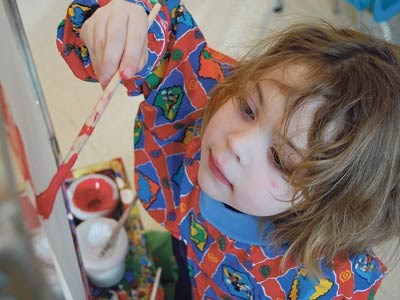The following are answers to questions commonly asked about the Rainbow District School Board’s kindergarten/early learning programs.
Q: When can my child start school?
A: For enrolment in junior kindergarten, your child must be four years of age by Dec. 31, 2011. For enrolment in senior kindergarten, your child must be five years of age by Dec. 31, 2011.
Q: Do all of the Rainbow District School Board’s schools offer full day, every day junior kindergarten and senior kindergarten?
A: Yes. Full day, every day junior kindergarten and senior kindergarten is offered in all Rainbow schools. Some schools are offering the new Early Learning Program, which is being phased into all schools by September 2015.
Q:What is the Early Learning Program?
A: Early learning combines education with care. A certified teacher and a registered early childhood educator lead a class of 26 children. As part of early learning, parents have the option of enrolling their children in programs that begin before school (as early as 7 a.m.) and after school (as late as 6 p.m.). This provides continuity of learning and a seamless school day for families.
Q: Are before and after school programs offered in other schools?
A: Many schools offer before and after school programs for children. Some schools also offer child care for pre-school children. For additional information, contact the Rainbow school nearest you.
Q: How do four and five-year-olds learn?
A: Young children satisfy their natural curiosity through play. When children are playing, they are relaxed and open to new ideas and possibilities. They role play, explore, discover, interpret, question and develop knowledge and skills. Through play, they learn to co-operate, share, express themselves and understand the feelings of others. They also develop motor skills.
Q: What is play-based learning?
A: In early learning-kindergarten, children play with ideas and materials related to literacy, mathematics, science, technology, the arts and health and active living — on their own and together with other four and five-year-olds. Educators use play as the vehicle for learning because it builds on children’s natural curiosity. This is called “play-based learning.” By asking key questions, and providing stimulating learning materials, educators guide children as they explore various learning centres, building on activities that capture their interests. Children participate in play-based learning both indoors and outdoors.
Q: Why are children’s interests so important?
A: Interests are strong motivators for learning. Interests engage children because the information they are gaining is relevant and exciting to them. When children are engaged, they are ready to learn. They are in the optimum frame of mind to grasp concepts. When concepts are meaningful, they are that much more memorable. The Ministry of Education recognizes this, so there is a renewed emphasis on student interests as an important consideration when planning for learning from junior kindergarten to Grade 12.
Q: What skills do children gain in early learning-kindergarten?
A: Children develop oral language skills and begin to learn how to read and write. Children gain problem-solving skills through activities that integrate mathematics, science and technology. They also learn to express themselves through the arts, including drama, music, painting, drawing and crafts. The early learning-kindergarten program focuses on personal and social development as well as health and physical activity.
Q: How will early learning-kindergarten benefit children?
A: In full day early learning–kindergarten, children have increased opportunities to be with their peers and to develop the academic and social skills necessary for success in school and in life. The program establishes a solid foundation on which to build reading, writing and math skills. With many more opportunities for educators to introduce and extend literacy concepts, children develop deeper comprehension skills and higher order thinking skills. When children learn to read, they will be “thinking” readers. They will not simply be reading words on a page. Early learning also helps children make a smoother transition to Grade 1.
Q: How is reading and writing taught to four and five-year-olds?
A: Literacy occurs throughout the day. It is integrated into the various learning centres. Centres have books to reference and to read. And there are a variety of writing materials for children to represent their thoughts and ideas. Teachers work with children in small groups to help them develop an understanding of how print works and how to use it in meaningful ways.
Q: How is the classroom designed to stimulate learning?
A: In the early learning-kindergarten classroom, learning centres are designed to elicit scientific, mathematical, technological and/or artistic thinking. Everything in the classroom is intentional, including all of the material at these various centres. The environment supports children’s learning.
Q: What can parents do at home to help prepare children for the start of school?
A: Parents can instill in their children an enthusiasm for learning by sharing common interests, asking questions, engaging them in conversation, reading a book together, exploring new ideas, or collecting, sorting and counting.
Q: How can I learn more about full day early learning-kindergarten?
A: To learn more, visit the Rainbow school nearest you or e-mail [email protected]
Norm Blaseg is director of education for the Rainbow District School Board. This is the last in a series of columns on early learning. The columns are available online at northernlife.ca and rainbowschools.ca.
